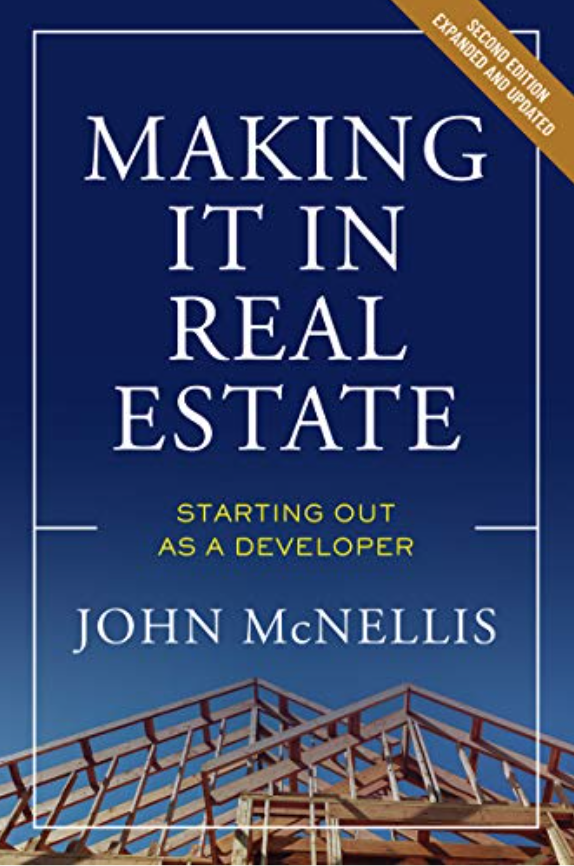The Bible’s book of Ecclesiastes tells of a time to every purpose under heaven. A time to rend and a time to sew. A time to kill and a time to heal. A time to scatter stones and a time to gather them together—a time for each endeavor in its turn. Ecclesiastes nailed this one for believers: The righteous were to be in the moment, not to swim against the tide, to plant in spring and to reap at harvest.
Simple advice for a simple time, and therein lies the rub—Ecclesiastes wasn’t written for today’s complex world. Today, the real estate righteous—well, ok, the clever—cannot buy in one season and sell in the next. To avoid capital gains, they must buy and sell almost in the same breath.
The year is already shaping up to be a great time to sell. McNellis Partners’ world—retail—is having a nationwide garage sale in which every owner, large and small, has dragged his worst junk out onto the front lawn. Selling are ragged strip centers where more business is done in the parking lot than in the worn-out shops, malls whose highest-and-best use is letting fire departments burn them down to train recruits, and empty boxes where space will be leased the week Rick Perry is elected president. But instead of garage-sale prices, owners are asking for—and getting—top dollar. It truly is a time to sell.
But your (agnostic-in-all-things-but-saving-taxes) accountant isn’t interested in the biblical: “What? You’d sell without trading? You’re killing me!” Thus, those who think they are clever—we, among them—are selling but also trying to trade right back into the same market.
This year, we plan to sell four properties. Heeding our accountant (at the expense of ignoring Ecclesiastes) we have been desperately trying to trade. That means leaving one’s own garage sale, walking up the block and buying someone else’s overpriced, busted lawnmower.
We have scoured a lot of yard sales in our trade search this year, only to uncover a fatal flaw in every property we examined—flaws that loosely fall into two camps: the overpriced and the unsafe-at-any-speed.
The best deal in the overpriced camp had a certain gilt-edged charm until we did the math. (It’s always the math.) A single-tenant building a block from ground zero in a superb neighborhood, this deal has a lot going for it. The tenant is an excellent operator with a BBB+ credit rating and has been doing great business at the location for a dozen years under a long-term lease. It was priced, however, to yield exactly 5 percent for the next 10 years; thereafter, the rent would go up 4 percent every five years for the next 20 years. This means the yield on our original investment would rise to not quite 6 percent in 30 years—a return so pathetic even Argus couldn’t disguise it. But it was a safe deal, even a good one for those without fear of inflation or rising interest rates. Having such fears, we passed.
The good news about overpriced deals is that the flaw is so obvious that, if you don’t lie to yourself, you grasp it the moment you work the numbers.
That is not the case with the unsafe-at-any-speed deals. They often look pretty. We found a shopping center in the Central Valley that looked great, especially from about 300 yards. Upon closer inspection, the project did have a few obvious drawbacks: It was a bit more than 20 percent vacant—worrisome but not fatal because the vacant space had been valued at zero in the center’s pricing. (In sales speak, the vacant space was “free”—the price was determined solely on actual in-place income.) And this vacancy was spun just the way it has been since Moses tried to sublet Mt. Sinai—the center needs hands-on management; the ownership is from out of the area; you could turn it around.
Touted as a “value-add” deal, we ultimately concluded the center was instead a “value-subtract” proposition, primarily because too many of its remaining small-shop tenants were not the recession-hardened survivors we had optimistically hoped for, but instead patients in the final stages of hospice care, months, if not weeks, away from a final lease termination.
We passed on that one, too.
In the end, the only options we could find in our trade search were to lose money, either slowly through purchasing a very overpriced “safe” investment or swiftly through an unsafe-at-any-speed project. In deciding to step away from the crazy retail market and just pay our taxes, Ecclesiastes came to mind. True, there is nothing written in the text about a time to buy and a time to sell. But if the writers of Ecclesiastes had spent the last six months looking for a trade property, they may have sharpened their styluses and tossed in another verse. Turns out, the Bible just might be more useful in today’s world than we thought.


